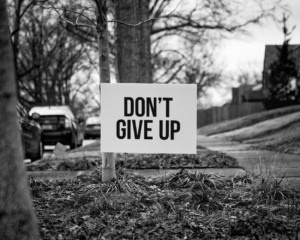Think about the last sports game you watched. You undoubtedly saw a coach interacting with the players, helping them improve their skillset, answering questions, and strategizing plays.
 Many people understand what coaching is to sports. You might even have experience with executive coaching or business coaching and know what that looks like in the context of an organization or small business.
Many people understand what coaching is to sports. You might even have experience with executive coaching or business coaching and know what that looks like in the context of an organization or small business.
Coaching in the context of life or marriage is really about taking individuals or couples from where they are now to where they desire to go. It’s a process for change that involves working towards the future by asking very strategic questions and helping individuals unpack goals, values, action plans, and more.
Christian coaching is done from a biblical perspective. This means that the coach might integrate biblical principles, draw from scripture, or take time during the session to pray with the client or clients. In Christian coaching, coaches can help individuals or couples find God’s vision for their life or marriage and overcome the obstacles that keep them from walking it out.
When we describe coaching as a way to move individuals from where they are now to where they want to be, Christian coaching often involves moving individuals from where they are now to where God wants them to be.
What’s the Difference Between Christian Coaching and Counseling?
Counseling is different from coaching in that it is a form of therapy and recovery. A counselor deals with an individual’s past and their need for healing whereas a coach deals with the individual’s future and the process of taking that person from being stuck or in a conflict in their life, marriage, or career to unstuck with a solid plan to move forward.
Another thing that is different between counseling and coaching is the level of education or training required. Counselors have a master’s degree in either counseling, mental health counseling, social work, or another related field.
Coaching isn’t a regulated field at this point, however, many coaches have extensive training and are certified in the skills and coaching techniques necessary to help build towards the future with clients and help them come up with strategic plans for achieving goals.
 While there are differences between counseling and coaching, it often overlaps. Both coaches and counsellors work to help individuals identify goals, overcome obstacles, and find better ways of functioning and thriving in life.
While there are differences between counseling and coaching, it often overlaps. Both coaches and counsellors work to help individuals identify goals, overcome obstacles, and find better ways of functioning and thriving in life.
A coach offers accountability and works with the client to formulate a plan that’s based on that client’s inner revelations, skills, and personality. The client is highly active and involved and it’s not a process that involves the coach dishing out advice and the client trying to apply that advice. It’s a process of discovery.
Many people will say that counseling deals more with dysfunction while coaching deals with helping clients function better and achieve success. Others will also refer to coaching as helping individuals turn potential into reality and that’s also a good definition of coaching. Both counselors and coaches, however, are trained to help clients discover, set, and achieve goals.
Both can be incredibly beneficial, and it may come down to what you believe is the best fit and what resonates with you about a particular coach or counselor and their skillset. You might also really love the growth you’ve seen in an individual or couple and choose to work with a coach based on a testimonial and referral.
If you’re trying to heal from past wounds, emotional distress, or trauma, counseling is likely what you need. If you’re trying to grow or advance in your life, marriage, or career and want to take something specific to the next level, coaching is a great option for you in terms of development and advancement.
How Does Coaching Help Me?
Coaching involves asking very thought-provoking and powerful questions to help the client identify what thoughts, behaviors, or actions might be impacting their lives and what’s standing in their way. Through coaching, clients become more aware of what it is that’s shaping their lives and they learn how to think through and process those things in a structured way to make decisions rather than stay stuck.
To understand how coaching might help you, let’s walk through a sample coach and client scenario.
Client: I feel so stressed and overwhelmed. It seems like I do everything and there’s too much on my plate.
Coach: Tell me more about that.
C lient: Well, I work full-time, and I must rush home from work to pick up the kids from school and day-care. Then, I must fix dinner, get them ready for bed, and hop on a Zoom call for the women’s ministry at Church which I help lead. If I’m not too exhausted afterward, then I have to pick up the house, do the dishes, and figure out what day will work to call and make dentist appointments for everyone. If I do crash, I’m behind, and it feels like I’m always running behind.
lient: Well, I work full-time, and I must rush home from work to pick up the kids from school and day-care. Then, I must fix dinner, get them ready for bed, and hop on a Zoom call for the women’s ministry at Church which I help lead. If I’m not too exhausted afterward, then I have to pick up the house, do the dishes, and figure out what day will work to call and make dentist appointments for everyone. If I do crash, I’m behind, and it feels like I’m always running behind.
Coach: That does sound exhausting. What would it look like for you not to have to do all of that?
Client: I don’t know.
Coach: Okay. Well, what if you did know? Let’s say this is all happening on a Monday. What would it look like for you to have the support that day so you didn’t feel overwhelmed?
Client: Well, maybe my husband would pick up the kids from day-care and school or he would put them to bed and do the dishes that night.
Coach: Okay, great. So, if you knew that he was going to put them to bed that night and you had a few minutes to catch your breath and prepare for your call, would you feel better?
Client: Yes, so much better. Maybe I could even drink a cup of tea while I got ready for my call.
Coach: Okay, what’s stopping you from asking your husband for some support?
Client: Nothing, I guess.
Coach: How would you feel about talking to your husband the weekend before or say Sunday night and saying something like, “Hey honey, I have a busy day Monday and a call with the women’s team after dinner. I would love your help with either picking the kids up or getting them to bed and doing the dinner dishes, what would it look like for you to help me on Monday?”
Client: I can do that. It’d be so great to have his help.
Coach: Great! What might keep you from having that conversation with your husband?
Client: Nothing. I need to do it.
Coach: Okay, great. Let’s get specific about when you’re going to do it. When can you have a conversation with your husband?
Client: We always talk about the week ahead on Sunday evenings, so I’ll talk to him about it then.
Coach: Great!
 Then, the coach and client would carry on discussing ways the client might be able to lighten her load and bring on the support she needs to live a balanced life. Depending on the level of work necessary and over several sessions, they would unpack what it looks like for this particular client to achieve more balance in her life and create a very specific action and follow up plan.
Then, the coach and client would carry on discussing ways the client might be able to lighten her load and bring on the support she needs to live a balanced life. Depending on the level of work necessary and over several sessions, they would unpack what it looks like for this particular client to achieve more balance in her life and create a very specific action and follow up plan.
Coaching can be applied to any number of situations and obstacles in a person’s life. Many times, in coaching, we’ll find that an individual achieves huge perspective shifts and is finally able to overcome in an area he or she has felt stuck in for a large portion of his or her life.
Is Christian Coaching Like Discipleship?
Discipleship is more focused on teaching individual biblical truth or spiritual disciplines and often involves Bible studies, group discussion, or a mentor-mentee type of relationship. While there can be similarities, the focus of coaching is not necessarily to grow spiritually but to use scripture or biblical truths to better function in life, reach goals, or overcome obstacles.
Christian coaching is an excellent tool to help you better function in your career, life, or relationships. If you’re stuck in an area of your life or need help discovering what’s holding you back and coming up with an action plan to hit your goals, you can learn more about our Christian coaching by clicking here.
“Casual Meeting”, Courtesy of Toa Heftiba, Unsplash.com, CC0 License; “Arrow Sign”, Courtesy of Jens Johnsson, Unsplash.com, CC0 License; “Don’t Give Up”, Courtesy of Rosie Kerr, Unsplash.com, CC0 License; “Faith, Hope, Love”, Courtesy of Chris Liu, Unsplash.com, CC0 License










